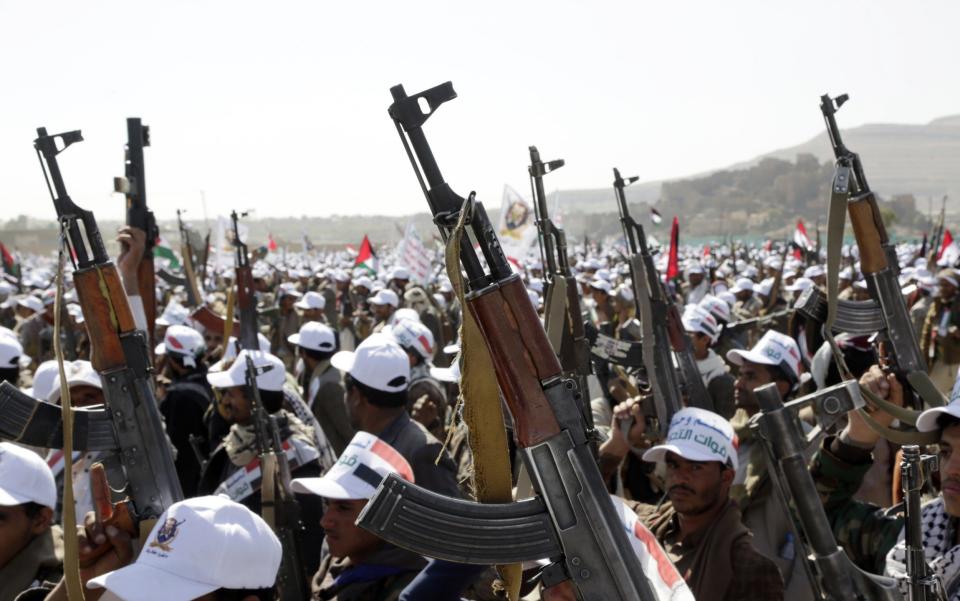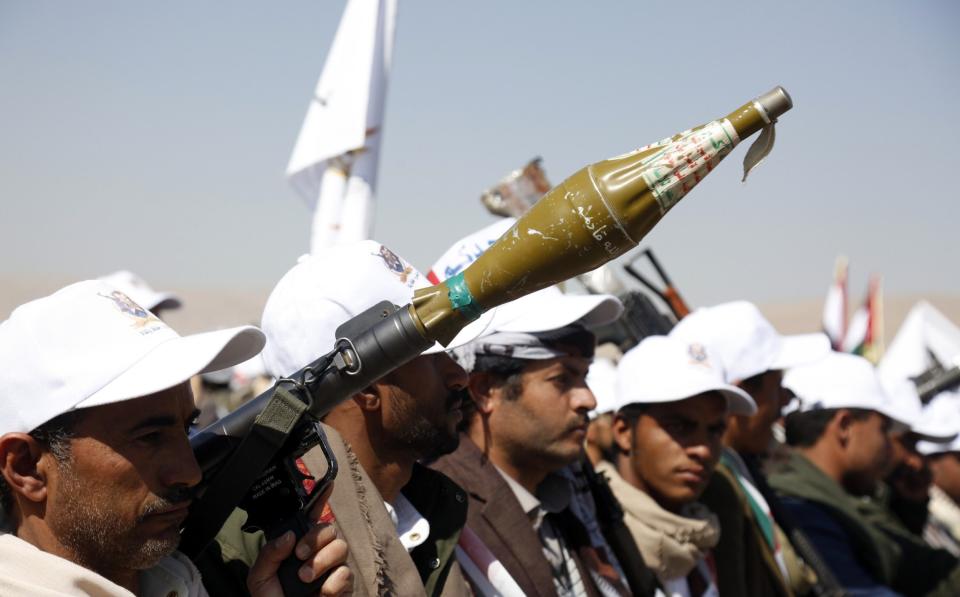Iran threatens to shut Strait of Gibraltar as tensions ramp up

Iran has threatened to close the Strait of Gibraltar and the Mediterranean Sea unless Israel stops bombing Gaza, as the US warned Tehran was “deeply involved” in attacks on shipping.
“They shall soon await the closure of the Mediterranean Sea, [the Strait of] Gibraltar and other waterways,” Brigadier General Mohammad Reza Naqdi, a senior member of the country’s Islamic Revolutionary Guard Corps said today.
The general did not explain how Iran, which does not border the Mediterranean, intended to make good on its threat.
Iran’s proxy militias in southern Lebanon and Syria do have access to the sea, through which about a fifth of global maritime trade passes.
The Houthis in Yemen, which are backed by Iran, have already forced several major shipping companies to reroute their vessels to avoid the Red Sea by targeting merchant craft with drones and missiles.
On Saturday, a Liberian-flagged tanker was struck by a drone while it was sailing in the Arabian Sea off the coast of India, setting it on fire.

“Some structural damage was also reported and some water was taken onboard. The vessel was Israel-affiliated. She had last called at Saudi Arabia and was destined for India at the time,” British maritime security firm Ambrey said.
The fire was extinguished without any casualties being suffered by the crew.
There was no immediate claim of responsibility, but the attack came amid a wave of drone and missile attacks carried out by the Houthis.
“Yesterday, the Persian Gulf and the Strait of Hormuz became a nightmare for them, and today they are trapped ... in the Red Sea,” Brig Gen Naqdi said, describing “the birth of new powers of resistance”.

The Houthi leadership have described the attacks as retribution for Israel’s invasion of Gaza, which was run by another Tehran ally, Hamas.
They claim that the attacks are targeted against shipping headed for Israel; however, several ships which have been struck have no connection with Israel or the war.
On Friday, US intelligence accused Tehran of being “deeply involved” in the operational planning of the Red Sea attacks.
US intelligence suggests that Iran has been providing a monitoring system which is essential for the attacks, the National Security Council spokesman Adrienne Watson told US broadcaster CNN.
“Iran has the choice to provide or withhold this support, without which the Houthis would struggle to effectively track and strike commercial vessels navigating shipping lanes through the Red Sea and Gulf of Aden,” Ms Watson said.
Houthi attacks
“Iranian-provided tactical intelligence has been critical in enabling Houthi targeting of maritime vessels since the group commenced attacks in November,” she added.
Iran’s deputy foreign minister rejected the accusations that the country was involved in the Houthi attacks, saying the group was acting on its own.
“The resistance (Huthis) has its own tools... and acts in accordance with its own decisions and capabilities,” Iran’s deputy foreign minister Ali Bagheri told the country’s Mehr news agency.
“The fact that certain powers, such as the Americans and the Israelis, suffer strikes from the resistance movement... should in no way call into question the reality of the strength of the resistance in the region,” he added.
War on Israel
The Houthis, who have been fighting against Yemen’s government in a civil war since 2014, are part of an Iran-led “axis of resistance” against Israel, the US and the West.
The group’s leaders declared war on Israel last month, launching a salvo of drones and ballistic missiles at the southern Israeli city of Eilat more than 1,000 miles away.
Iran has repeatedly warned of a widening conflict, and last month, its foreign minister Hossein Amir-Abdollahian said the intensity of the war has rendered its expansion “inevitable”.
Iran’s president Ebrahim Raisi has said Iran sees it as “its duty to support the resistance groups” but insisted that they “are independent in their opinion, decision and action”.
Last month, Tehran dismissed as “invalid” Israel’s accusations that Houthi rebels were acting on Tehran’s “guidance” when they seized a Red Sea ship owned by an Israeli businessman.

